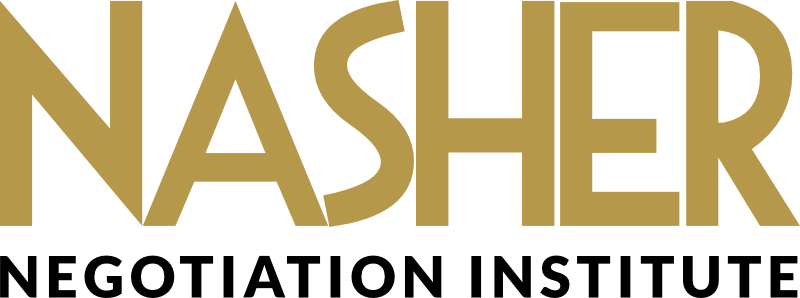Expo Real will take place in Munich from October 4 to 6. This is the most important trade fair of the year for real estate project developers. After years of boom, the sector is facing a long list of challenges: higher interest rates, increased requirements in terms of energy efficiency and the ESG, the decline of bricks-and-mortar retail and the decreasing demand for office space. As a result, the first well-known real estate developers have recently had to open insolvency proceedings. The Nasher Negotiation Institute uses its industry expertise and the latest scientific methods to help minimize the costs of construction projects.
Minimization of award costs
The Nasher Negotiation Institute carries out a structured award process when awarding contracts for individual trades. The negotiation solutions are always case-specific. Each trade requires its own understanding of technology, the market and prices. In some situations, integrative negotiation strategies are effective; in other situations, competitive approaches are more promising. With this approach, Nasher achieves additional savings of around 10% ‑15%.
Minimizing the costs of change management
During the construction phase, the costs of construction projects often explode due to technical changes. Renegotiations then have to be conducted in which project developers are in a weak negotiating position. By using so-called change management catalogs and querying contingent prices, change costs can be demonstrably reduced significantly. This reduces change costs by around 15%-20%.
Optimization of non-contractual premises
Our experience shows that contractual premises are often negotiated far too late, sometimes only after the service providers have been selected. This puts project developers in a poor negotiating position when the typical contractual disputes, such as payment dates or penalties, come up. Our experts therefore start negotiating important contractual premises from the 1st RfQ.
Identification and avoidance of price fixing
Illegal anti-competitive agreements are unfortunately very common in the construction industry. Fortunately, there have been groundbreaking advances in science. Machine learning algorithms can be used to identify collusive pricing and other fraudulent behavior. However, the great added value of these tools is not in detecting collusive behavior, but in preventing it. As soon as the use of these methods is made transparent to suppliers, the risk of collusive behavior drops significantly.
Are you interested in finding out more about how the Nasher Negotiation Institute can optimize the costs of project developers? Then use the form to send a direct message to our Head of Consulting Dr. Oliver Mäschle.

